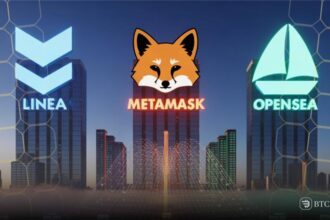OpenSea users have filed a class-action lawsuit in the U.S. against the NFT marketplace, accusing it of selling unregistered securities. Anthony Shnayderman and Itai Bronshtein, in a lawsuit filed on Sept. 19 in Florida, argue that the NFTs they bought on OpenSea, including from the once sought-after Bored Ape Yacht Club collection, are now worthless because of their allegedly illegal status.
In their discussions, the duo highlighted OpenSea’s recent announcement about receiving a Wells notice from the Securities and Exchange Commission. Specifically, they argued that this indicates OpenSea might be in serious trouble and could potentially be held responsible for allowing the trading of unregistered securities.
A Wells notice is essentially a heads-up from the SEC, indicating that they’ve looked into someone’s activities and might be considering legal action against them. Furthermore, the lawsuit highlights the SEC’s previous actions against NFT projects like Stoner Cats 2 and Impact Theory, where the regulator claimed that the NFTs involved were essentially unregistered securities sales.
OpenSea faces NFT misleading sale allegations
Shnayderman and Bronshtein argue that the Howey test, which defines what constitutes a security, indicates that the NFTs they purchased on OpenSea are investment contracts under U.S. securities laws. They claim these NFTs were part of a joint enterprise, and they expected to profit from the efforts of others.
The lawsuit states that OpenSea’s NFT listings were misleading, leading the plaintiffs to buy what they describe as worthless and illegal unregistered securities. Moreover, it alleges that OpenSea claimed to “moderate the NFTs on its exchange, including ‘real-world financial instruments…securities.’”

The duo argued that OpenSea violated a user agreement promising to oversee the exchange for unregistered securities. Additionally, they claimed that OpenSea benefited unfairly by charging fees and accepting payments that it either knew or should have known came from selling these unregistered securities.
In an email statement, the Moskowitz Law Firm managing partner, Adam Moskowitz, representing Shnayderman and Bronshtein, stated that given the rapidly evolving regulations, it’s important to establish a proper process for selling NFTs in a well-regulated environment. He also expressed eagerness to collaborate with OpenSea, saying:
We look forward to finding the best approach and future processes that benefit both consumers and the crypto industry.
Related | Ethereum hits 40-month low amid outflows







